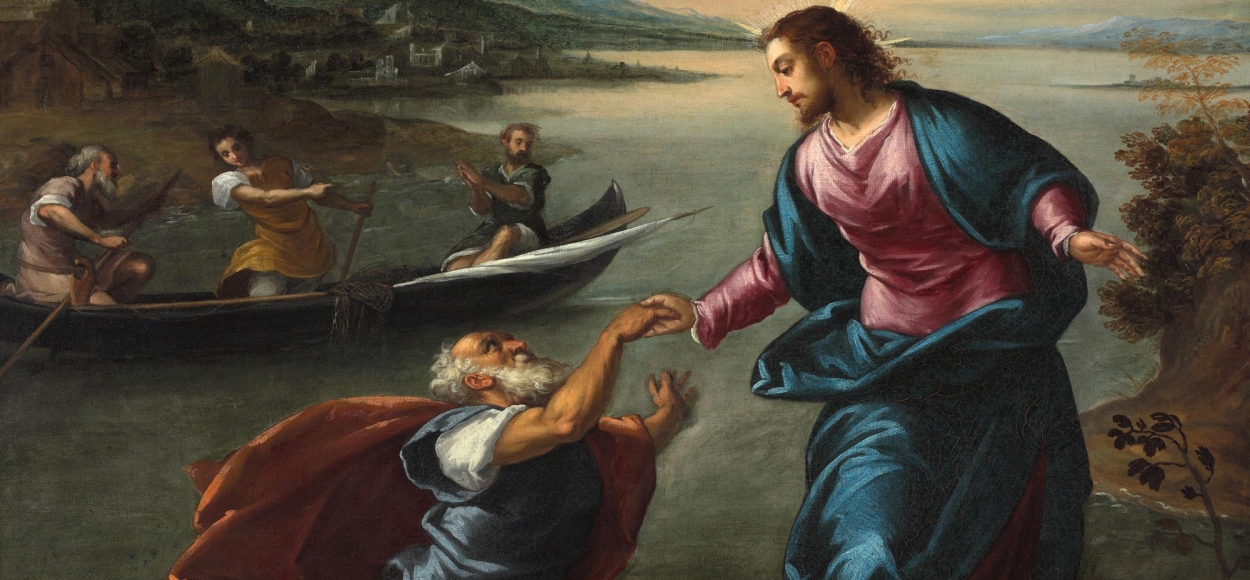We celebrate Church Service Sunday on 23rd November
Duncan Wood writes about a fisherman who became the rock on which the Church is built …
It’s funny how certain things crop up repeatedly in life. One of these, for me, is the name of St Peter. I studied theology at Peterhouse, Cambridge and now I’m a churchwarden at St Peter’s Church in a Norfolk village.
One place that made a big impression on me in the Holy Land was the Church of St Peter in Gallicantu. It’s the place in Jerusalem (or so tradition claims) where Peter three times denied that he was a follower of Jesus. Then a cock crowed, as Jesus had predicted, and Peter burst into tears at his weakness. I could sense Peter’s distress there. It seemed gloomy.
By contrast, the Church of the Primacy of St Peter on the shore of the Sea of Galilee was a place of light, peace, and promise. The sunshine helped, but it was more than that. I could sense Christ’s love for Peter. ‘Who do you say I am?’ asked Jesus. Peter answered, ‘You are the Messiah, the Son of the living God.’ Jesus replied, ‘Blessed are you, Simon son of Jonah, for this was not revealed to you by flesh and blood, but by my Father in heaven. And I tell you that you are Peter, and on this Rock I will build my church, and the gates of Hell will not overcome it.’
Solemn words, but also, I think, an example of the Lord’s sense of humour. In Aramaic, the language Jesus spoke, Peter’s name ‘Cephas’ means ‘Rock’; the Greek equivalent is ‘Petros’, the Latin ‘Petrus’, from which we derive words like petrified = ‘turned to stone’. The joke, I think, is that Peter was a man of great enthusiasm, but one who was not (then) as steady as a rock. The solemnity of churches tends to obscure the fact that Jesus was a witty man who used humour to make serious points, much as, the playwright George Bernard Shaw did many centuries later.
But does this view do St Peter an injustice? Well, he did deny Christ three times but went on to be martyred himself. And that is the key. He was a man of both weakness and strength. He was a man who depended on God’s grace to build up both himself and the church he led following the Lord’s physical death. I think it is that frank dependence on grace that Jesus meant when he talked about the rock on which the church would be built. We are all incomplete as human beings unless we are filled up with grace.
The classical historian Michael Grant in his 1994 biography of St Peter suggests that Jesus was not calling Peter a rock so much as a stone, i.e. the foundation stone of a new temple, echoing Isaiah 28.16, ‘See, I lay a stone in Zion, a tested stone, a precious cornerstone for a sure foundation; the one who relies on it will never be stricken with panic.’ Interestingly, this text is also quoted in the First Letter of St Peter in the New Testament, where the author applies the text to Jesus himself. Many scholars doubt that Peter himself wrote this letter, but even so this view would have come from Peter’s circle in the early church.
Grant, writing as a historian, considered that Jesus chose Peter as his chief disciple because of his devotion and faith. Of course, Peter’s faith sometimes wavered, but Grant thought that this passage in John 6.67-69 about an earlier unhappy phase in Jesus’ ministry might go a long way to explaining why Jesus regarded Peter as a rock for the future: ‘After this many of his disciples turned back and no longer walked with him. So Jesus said to the twelve, ‘Do you want to go away as well?’ Simon Peter answered him, ‘Lord, to whom shall we go? You have the words of eternal life, and we have believed, and have come to know, that you are the Holy One of God.’
Br Duncan Wood
More Spotlight News

Greenbelt Festival 2025 – Somewhere to believe in

2025 MWA (Moravian Women’s Association) Retreat


